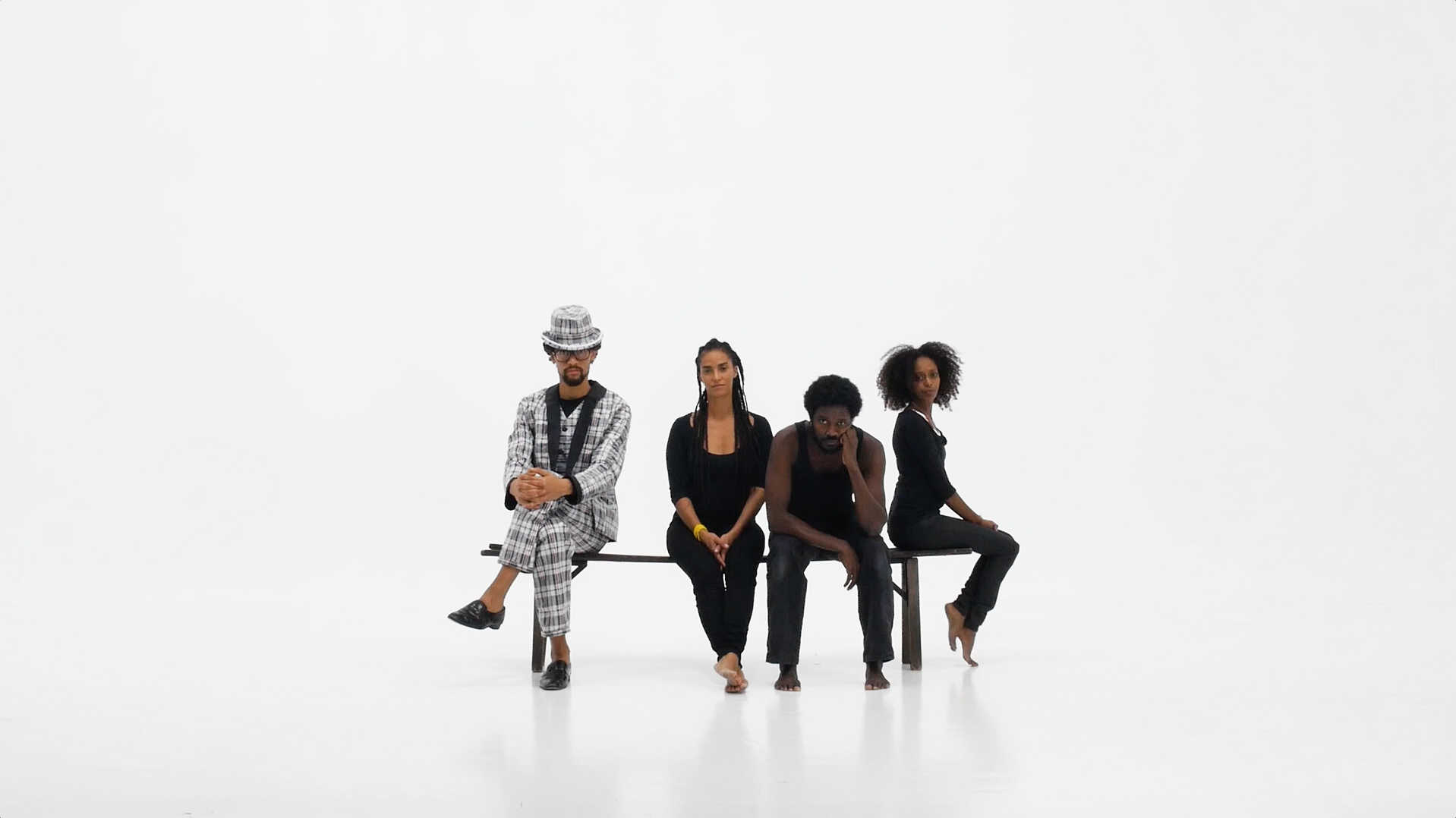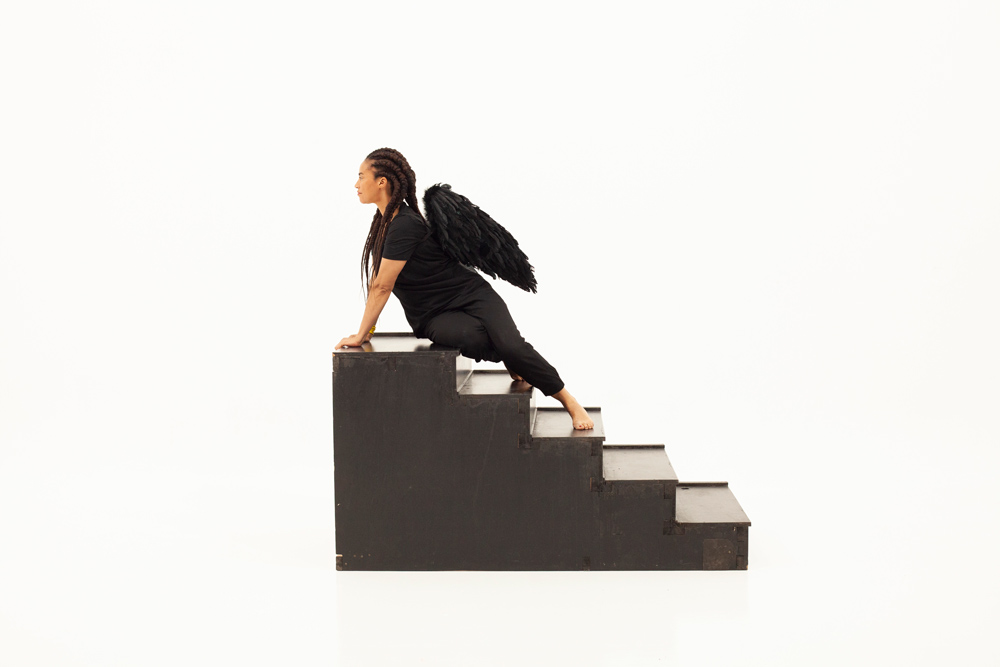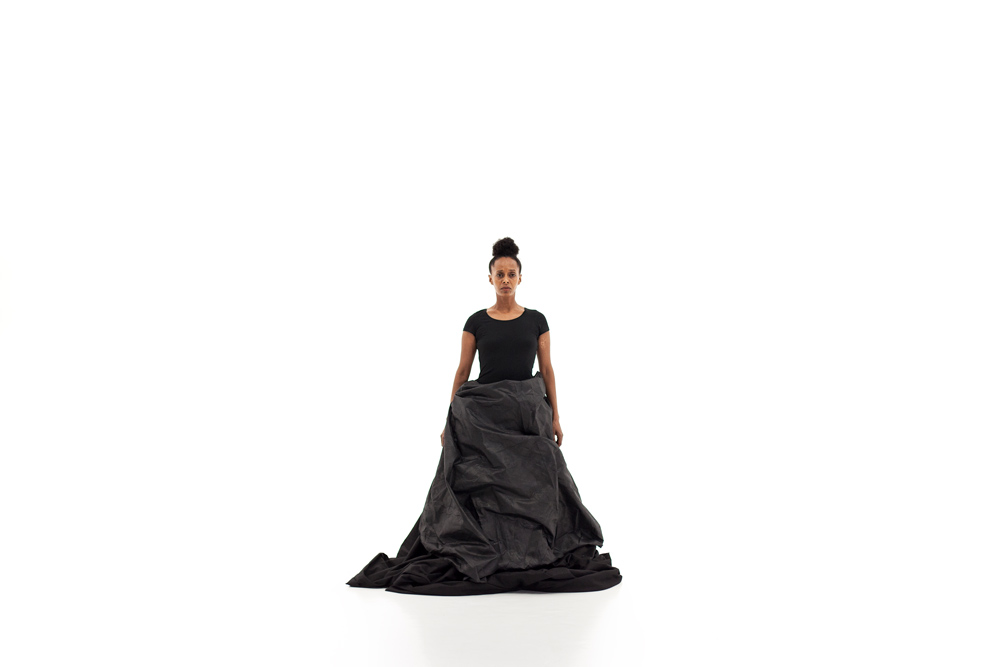The trilogy ‘A World of Illusions’, by Grada Kilomba, in the CAM Collection

Grada Kilomba (1968) is a Portuguese artist, writer and psychologist of Angolan and São Tomean descent, who has a degree in clinical psychology and psychoanalysis, and a PhD in philosophy.
With work exhibited in various countries, the artist develops a transdisciplinary practice, the result of her academic background, reflecting on important themes of contemporary society such as memory, race, gender, identity and postcolonialism. In her work she combines psychoanalytic theory and postcolonial, queer and gender studies with different means of artistic expression – performance, theatre, music and literature – as a way of creating different languages, because ‘we cannot tell new stories and new narratives with the same vocabulary.’[1]


Creating unique images to deconstruct the concepts of knowledge, power and violence, Grada Kilomba seeks to bring to the present the memory of the colonial past, highlighting the need to recognise the silencing to which the black individual is subjected, in order to bring about the decolonisation of thought so that the voice of the subject of the African diaspora may be heard.
In the trilogy A World of Illusions, which now belongs in its entirety to the CAM Collection following the acquisition at the end of 2021 of the last two volumes of the trilogy, Grada Kilomba uses figures of Greek mythology – Narcissus, Oedipus and Antigone – rewritten and performed by actors, combined with colonial history to give body and form to her critical writing, generating a debate about human rights in the present day. Through a subversive and poetic gesture, classic tales and contemporary political issues enter into dialogue with one another, inviting us to reflect on postcolonial themes of racism, gender oppression, violence and new configurations of power and knowledge.


Thus, in the series Illusions, the artist retells Greek myths, gradually deconstructing them and transforming them into analogies of today’s society. For example, the installation Illusions Vol. I, Narcissus and Echo is a metaphor for a society which has yet to resolve its colonial past and is incapable of seeing beyond its own reflection. The rereading becomes an incisive analysis about the history of a system of distortion and exclusion.
The other installations in the trilogy follow a similar path: Vol. II, Oedipus tells a story about violence, exploring the role that fate can play for those who live in a system that reproduces cyclical oppression; and Vol. III, Antigone relates a story of resistance and justice, told from a black feminist perspective, in which the protagonist rebels against the colonial patriarchal system to bury her brother, transforming the burial into a political act against the oblivion of faces and reminding the spectator of the exploitation and death of black workers in colonial plantations.


Linking video to performance, sound and storytelling, the artist explores the power of cultural elements and traditions of the African diaspora (orality, musical and performative production), combined with costumes and simple props, creating a raw space where body and voice are prominent and the white background creates an atemporal sensation and infinite space.
Cláudia Lopes
Historian and researcher of contemporary art
[1] Grada Kilomba, e Sílvia Escórcio, “Grada Kilomba”, Contemporânea, ed. 12, n.º 5, 2017.